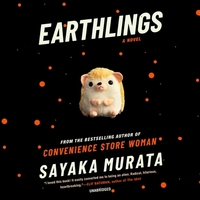Take a photo of a barcode or cover
dark
emotional
reflective
sad
tense
fast-paced
Plot or Character Driven:
A mix
Strong character development:
Complicated
Loveable characters:
Complicated
challenging
dark
medium-paced
Plot or Character Driven:
Character
Strong character development:
No
Loveable characters:
No
Diverse cast of characters:
No
Flaws of characters a main focus:
Yes
one of the weirdest books i’ve ever read. in the worst way possible! :)
dark
tense
dark
fast-paced
Plot or Character Driven:
A mix
Strong character development:
Complicated
challenging
dark
tense
fast-paced
Plot or Character Driven:
A mix
Strong character development:
Complicated
Loveable characters:
No
Diverse cast of characters:
Complicated
Flaws of characters a main focus:
Yes
dark
emotional
mysterious
tense
medium-paced
Plot or Character Driven:
Character
Strong character development:
Complicated
Loveable characters:
Complicated
Diverse cast of characters:
Complicated
Flaws of characters a main focus:
Complicated
This book starts out on a trajectory very similar to Convenience Store Woman - the main character is misunderstood and is suffering under the crushing weight of the conformity of Japanese culture. And it is staggering what lengths those around Natsuki go to in order to make her conform. At first, I enjoyed the childish framework of thought that Natsuki takes to understand her situation and to protect herself, even to the point of cheering when she kills an abuser. It matched the weirdness of the story. But Murata loses me when things float right out of reality ending with Natsuki, her husband, and her cousin killing and eating the parents of the abuser she killed years before. The descriptions the author gives to the act of cannibalism were bizarrely in depth and specific. And I found it very confusing when they seemed to be eating eachother - what?
I was trying to understand what Murata was trying to communicate with this ending, and it eluded me at first. In the end, I wonder whether it was sort of a message of the extremes of conformity and non-conformity. At the extremes, clearly neither is good.
Also I don't recommend the audiobook. The narrator seems to have no idea how to make inflections that reflect the feelings of the characters. Perhaps not a native English speaker?
I was trying to understand what Murata was trying to communicate with this ending, and it eluded me at first. In the end, I wonder whether it was sort of a message of the extremes of conformity and non-conformity. At the extremes, clearly neither is good.
Also I don't recommend the audiobook. The narrator seems to have no idea how to make inflections that reflect the feelings of the characters. Perhaps not a native English speaker?


